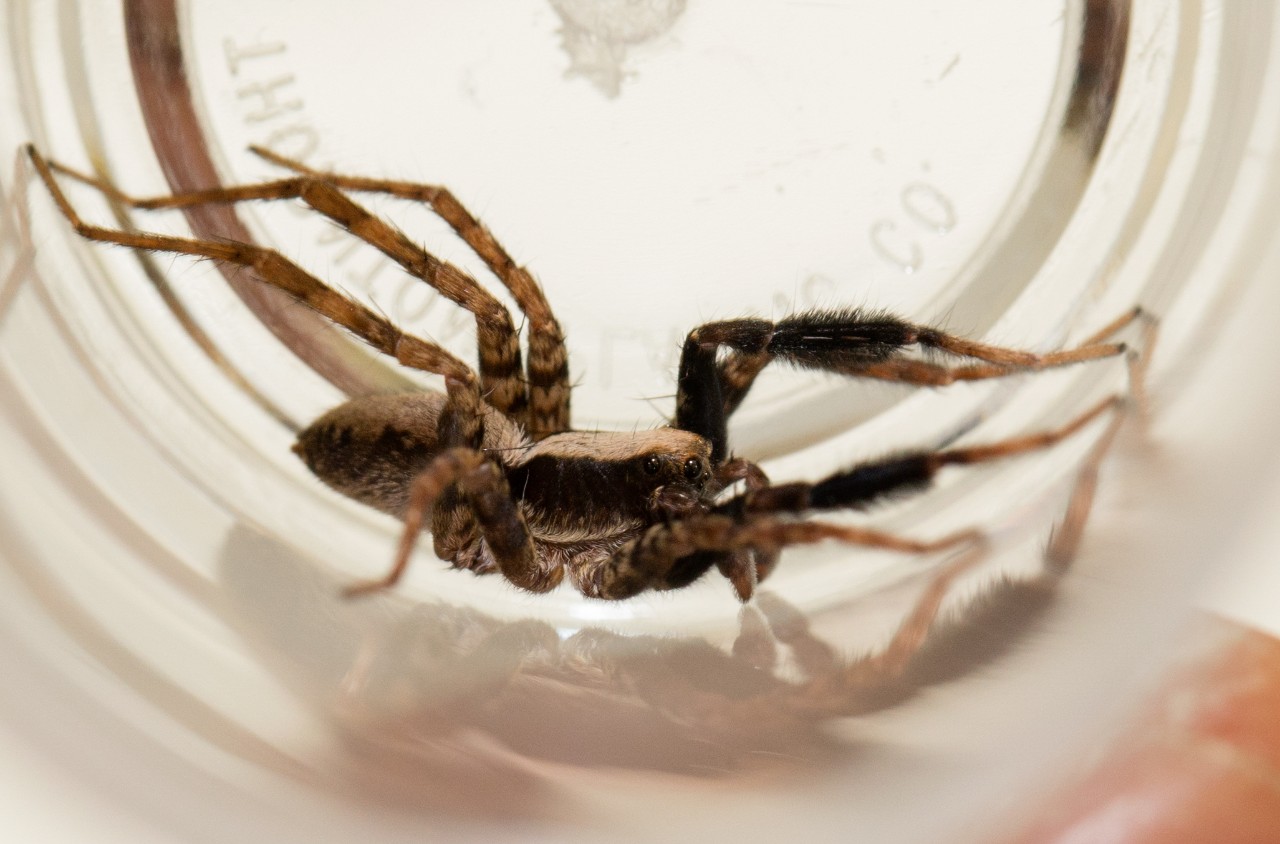
Wired talks to UC biologist about spider evolution
UC biologist George Uetz discusses how natural disasters might shape the evolution of spiders
University of Cincinnati biology professor George Uetz spoke to Wired about the role natural disasters might play in animal evolution.
Uetz, an expert on spiders, discussed a recent study by Canadian colleague Jonathan Pruitt published in Nature Ecology.
Evolutionary ecologist Jonathan Pruitt, a professor at McMaster University, found that hurricanes seem to make spiders more aggressive. Pruitt studied the aggression of colonies of spiders before three major coastal storms by mimicking the movements of an insect caught in the spiders' webs. The aggressive spiders immediately leapt to catch the prey. The more passive spiders let the web do the work, even if that meant some wriggling prey might escape.

UC biologist George Uetz.
Then Pruitt went back to find out how many babies the aggressive colonies produced compared to the more passive ones. He found that the aggressive colonies produced more babies while more of their juveniles survived the storms compared to the passive colonies.
"There's clearly some kind of selection going on here for the aggressive individuals in response to these extreme weather events," Uetz told Wired. "And that's what's really fascinating."
According to the Wired story, Uetz observed a similar phenomenon after a deadly tornado ripped through Montgomery, Ohio, in 1999. Uetz studied wolf spiders in the devastated sections of UC's Harris Benedict Nature Preserve and found differences in populations affected by the storm compared to those that escaped the disaster.
"On the one hand, it's not surprising that natural disasters have an impact on the survival of animals," Uetz told Wired. "But to see their impact on selection, how they actually drive the direction of evolution in a species, is pretty rare."
Uetz has been studying various aspects of spider behavior and communication in his UC lab. In a recent study published in the journal Behavioural Processes, Uetz found that the spider's courtship rituals make them more obvious to blue jays, a major predator. Likewise, their tendency to freeze when they hear the call of a blue jay effectively renders them invisible to nearby birds.
Featured image at top: A wolf spider in UC professor George Uetz's lab. Photos/Joseph Fuqua II/UC Creative Services
Related Stories
UC 1819 Innovation Hub workshop spreads AI awareness
June 28, 2024
Microsoft and Disrupt Now joined forces to run a June 24-27 seminar at UC’s 1819 Innovation Hub teaching Cincinnati residents how to responsibly use AI.
Free Wi-Fi, work area coming to Greater Cincinnati
June 27, 2024
St. Lawrence Park in Price Hill now has free Wi-Fi and a furnished outdoor space for community members to access digital needs. The space is part of The Nodes Project, which stands for “Neighborhoods of Design Engagement": a collaboration between UC DAAP communication designers and community entities.
UC alum credits journalism program with early success
June 26, 2024
Zachary Jarrell came to the University of Cincinnati in 2019 to pursue a degree in statistics. In 2023, he graduated with a Bachelor’s in Journalism. For many undergraduates, the journey through college rarely takes the expected track. Detours happen, and majors change. When plans switch up, it can be helpful to a student’s success to find support. For Jarrell, it was the people he worked alongside in the journalism department who helped him on his journey. It has left a lasting impression on his life so far, guiding him to multiple internships as an undergraduate, real-world experience in prominent news outlets, and eventually a successful career in the highly competitive field of journalism.
